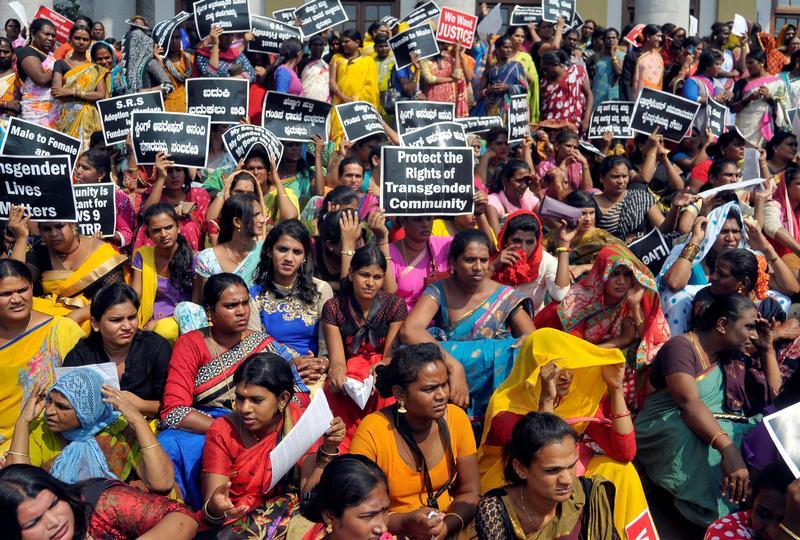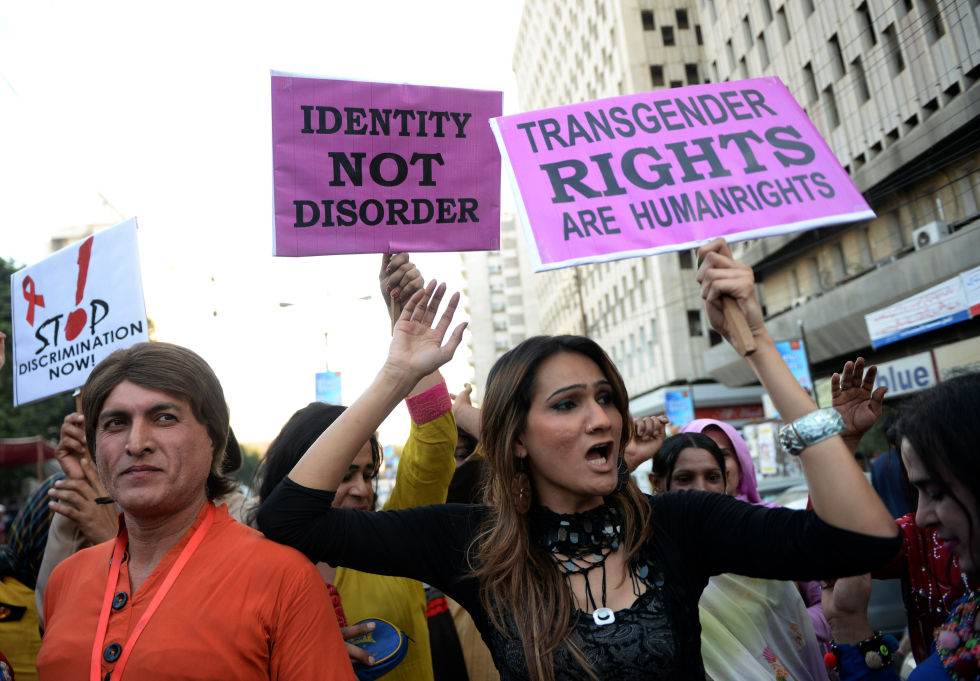The Lok Sabha just pushed through the Transgender Persons (Protection of Rights) Bill, 2016. But this is not cause for celebration.
In fact, one trans rights activist Grace Banu said, “This is a black day for us.” So, why is a Bill that is supposedly meant to recognise and empower the trans community facing such widespread criticism from that very community? Because it doesn’t provide any of the things that trans people in India have been asking for for years now.
Instead of expanding their rights, the Bill actually restricts trans individuals’ right to self-identify, doesn’t protect them from sexual violence and criminalises begging even though the Bill doesn’t provide alternative forms of employment.
The first draft of the Bill was tabled two years ago, in 2016 and has been a cause for distress and political action since then. But the story goes back to 2014, to the NALSA judgment – National Legal Services Authority (NALSA) v. Union of India – in which the Supreme Court affirmed a trans person’s entitled to their fundamental rights and gave individuals the right to self-identify as male, female or the third gender.
The 2016 Bill was supposed to build on this process. Keeping all of the socio-economic and discriminatory situations that trans people face, rights activists have demanded reservations in educational institutions and public sector jobs; they have asked for gender-neutral anti-rape laws and the right to determine their own gender identity.
Also read: Why the Transgender Community is Angry Over a Bill Meant to Protect Their Rights
However, when the Ministry of Social Justice and Empowerment introduced a draft bill in 2015, it actually went against the NALSA judgment. Somehow, the first draft, which ignored the concerned standing committee’s recommendations and public criticism, was passed in 2016.
Cut to 2018, and the parliamentary committee has ignored 27 recommended amendments to pass an essentially unchanged version of the problematic Bill.
Restrictive definition of ‘transgender’
The 2016 version of the Bill relied on a very restrictive definition of the term ‘transgender’ which was clearly based in a heteronormative framework. The 2018 version’s definition is not all that better, say trans rights activists.
The definition in the current Bill reads: “a person whose gender does not match with the gender assigned to that person at birth and includes trans man or trans woman, person with intersex variations, gender queer and person having such socio-cultural identities as kinnar, hijra, aravani and jogta…”

Social activists protesting against the trans rights bill, 2016. Credit: Reuters.
The Bill now conflates “intersex” with “trans” and also strips a trans person of the right to determine their own gender – something the NALSA judgment guaranteed.
As a statement from the NGO, Lawyers Collective, pointed out, the Bill could have simply said “person whose sense of gender does not match the gender assigned at birth.”
Erases right to self-identification
In addition to the limiting definition of the term trans, the new bill also says that an individual is to be considered trans they’ll have to get a certificate from the district magistrate. This effectively means that a person loses the right to self-identify. Moreover, they also need to undergo surgery to ‘match’ their professed gender identity before they can get the certificate from the district screening committee.
This effectively limits the right to be trans to very few who have the financial means to undergo surgery and excludes those who may not want surgery. It imposes strange and external restrictions on an individual’s identity.
Also read: Trans*forming the Constitution
No mention of reservations
In 2014’s NALSA judgment, the SC asked the government to extend educational and public sector reservations to trans people, but the new Bill doesn’t contain any such provision.
Instead the Bill says that the “state will ensure the rescue, protection and rehabilitation of transgender persons,”but that’s not the same as gaining equality through reservations.
Activists like Gee Imaan Semmalar have argued that reservations are necessary to enable trans people to live with dignity.

Transgender community holding protest against trans rights bill, 2016. Credit: Reuters.
Another way that the Bill undermines trans indivdiduals’ agency is by requiring immediate family members to take care of them, and if family members can’t then the court is supposed to order that the individual be placed in a rehabilitation centre.
It’s unclear why legal adults are expected to be put in others’ custody, not to mention the fact that families are often discriminatory and violent towards people who come out as trans and should not be entrusted with their care in such cases.
Also read: The New Transgender Bill Fails the Community
Criminalises begging
The new Bill makes begging a crime that can earn a person up to two years of jail time. However, since the Bill also doesn’t provide alternative employment options for trans people, it is effectively cutting them off from a common way of earning their livelihood. As many have said, by not providing alternative employment options, the Bill “structurally marginalises” the trans community.
Ignores sexual violence
Trans people are disproportionately vulnerable to sexual violence but our legal provisions only account for female victims, effectively excluding transgender people from legal protection.
This issue has been brought up in various forums by rights activists and politicians alike, yet the Bill only provides for a 6-month to two-year jail term for people convicted of sexually assaulting a transperson. Even though a crime against a woman can earn a person life imprisonment.
5/8 Many offences under the IPC such as rape, stalking, sexual harassment etc are applicable only if the victim is female. Therefore, I moved an amendment to include transgender persons under the ambit of the IPC.
— Shashi Tharoor (@ShashiTharoor) December 17, 2018
The Indian transgender community, activists, politicians, policymakers have all been vocal in their criticism of the Bill’s gaps and have articulated their demands and interests over and over. However, as Banu, founder of the Trans Rights Collective, put it, the process of recommending amendments was nothing but a “proof reading exercise”.
If the Bill doesn’t help the very people its meant for, then what’s the point?
Feature image credit: Reuters

